
It is a cold February that year, especially cold among the scant furniture on the bare tiles of our house off Road 9.
Mouna has taken to using the same small copper tray Baba made his coffee on. Did you ever get to see that ritual of Amin’s? Instead of his hourglass-shaped kerosene stove and conical coffee pot with a long handle, the tray now carries a saucer of cottage cheese and a little glass of tea. The tea glows amber where she places it, a half-moon of flaky, Lebanese-style bread hanging over the tray’s handle.
Black tea dust boiled in water with a spoonful of sugar must taste of her old age. But coffee makes her heart flutter, she says. She takes medicine for hypertension as well as her type 2 diabetes medicine, and she can’t stand her heart fluttering too much. Sometimes in the course of breakfast she will put on Baba’s Wayfarer glasses to read the papers, her snub nose cockled, her large hazel eyes enlarged behind the thick lenses. But mostly she just gazes at the half-dead Alphonso mango tree—the only one in our tiny, grassless garden, which no longer bears fruit.
She eats fast, not out of gluttony but for fear of slacking, as if at any moment something unspeakable may happen that requires her full attention.
Every day before I make my way to Tahrir I see her shuffling out of the kitchen to the sunny corner of the veranda. Her thick woolen nightie is held up by a muslin écharpe wrapped like a sash under her bosom. Her hair, drained of all color, is racked in a heap above her head. A pair of white long johns is tucked into men’s socks over the rubber slippers in which she is shod.
Back bent, Mouna dodges the rubble as she sets the tray on a plastic stool in front of her bergère, directly under the ten o’clock sun.
I forget when in the last year or so the eighties-style bergère that used to be her throne was placed there, looking the worse for wear without its footrest. It’s facing away from the gutted section of para- pet so she can pretend the veranda is still intact. The parapet collapsed so loudly it muffled the dawn azan, and you must remember how deafening that is. It collapsed without warning, giving her her worst scare in years, but whenever I’ve brought up fixing it, she’s doggedly postponed the chore.
—I’ll call in the builders, she keeps saying, as if speaking of arch- angels that might be asked to fix our fates. My builders will do a better job than anybody. Just give me some time to find the number of the contractor I trust.
And once again, hearing her, I think of her second bout of visitations—that’s what she really calls them: visitations—because it was the parapet’s collapse that triggered it. Removing the rubble would remind her. But, pretending there is no rubble there, she can just deny to herself that she’s been visited. All she has to do is dodge it, make sure her seat is facing the other way.
A whole decade had passed. Long enough that she’d forgotten her first bout when the visitations struck back two weeks after you left. Once you phoned from California I’d told her, and she’d been acting cool. Perhaps it was the effort of pretending she didn’t care.
The visitations only returned for a night at first, but when the para- pet broke a week later they stayed for a full, three-month term. I had been sworn to secrecy the one time she talked to me about it when they first hit, a few months after I moved out in 2001. After ten years I too had almost forgotten. But I had some idea of what was happening when I saw it.
You said it wasn’t till Baba died that she started going full medieval, right? Now I know it wasn’t so much your turning seventeen as his death that brought on her entropy. The evisceration that was his second indefinite absence—his infinite absence—made her question the point of her life.
That’s when she sold her BMW E39, the last and swankiest in a line of royal blue conveyances she’d owned and operated since she learned to drive. It was within a year of your birth in 1983, her becoming a driver, which she did to set herself even more firmly apart from her walker husband. Who—true to his communist convictions—would go on cultivating the rodeo skills required for using Egyptian public transport well into old age. Not once did she touch a steering wheel after he died.
She’d been in a middle-class reverie since at least 1986, the year she settled for early retirement the better to devote her pious-mamahood to money and maternité. Raising you like an exotic flower while she went through the motions of worship—with ever more fanatical gusto. Embarking on one pseudo business venture after another. Buying and selling land, transportation, currency. Renovating real estate. She was always calling in the builders.
She could busy herself to distraction after Baba became a lawyer for the Saudi multinational the Umayya Group. Never mind Abid’s Jeep Cherokee. It occurs to me for the first time that if not for that career move you would never have gone to the American University in Cairo or got your long-distance MA.
After 1990, Mouna grew so mellow her look of letdown all but disappeared. Never to return in force until she found herself arguing with Abid about whether Amin had died an infidel, then admonishing you for your wayward ways—fatherless floozie that you’d become!— the true extent of which she would never have the courage to take on. Decades of worship had not prepared her for the anger and the anguish of bereavement. Nor for the loss-lucidity that rudely shook her out of her reverie, made her see.
Nor, against fear of disgrace in this life and torture in the next, could her children provide relief.
Nour might be the sanest man in her life. That’s how she thinks of me despite my marriage to Aya Mandour. A sane mind and a clean soul. But, whether in terms of heavenly credit or practical living, I was a lost cause, now, wasn’t I.
And, correct and caring though he acted, she could only see Abid as a state-of-the-art miniaturization of her late brother, Umair. Or worse: her second handler from the Mukhabarat. With his athletic physique and clichéd good looks, Abid was a younger version of the person she called the Newspaperman. She might deny it even to her- self, but she knew in her bones that boy would always be an aberration, not of the same benign substance as Amin. It must’ve boggled her mind even more than his siblings’ how he could turn out that way. But there was no denying he had.
As for her exotic flower, it had grown into a man-eating mandrake. Now there was no more money with which to drown her sorrows in value propositions. But, worst of all, there was no Amin to argue with. Unbeknown to her, the very purpose of Mouna’s life had actually been to refute Socialism. To surround the puritanically left-wing political prisoner she’d married with a well-heeled and Allah-fearing Sadat-era family, never mind how he felt. Now this purpose was wrested from her bra where she had kept it, like a peasant woman’s cleavage-purse, for decades on end.
Unlike the parapet, Mouna’s initial collapse would be gruelingly gradual. But if it hadn’t happened in 2001, nor would her 2011 transformation. Four years after the revolution I am forced to the appalling conclusion that only Amin Abdalla Amin had enabled Amna Abu Zahra to stay a believer. He had to die before she could reinvent the world one last time, plucking God out of it to fulfill her destiny.
***
Preorder here: Graywolf Press
Excerpt from THE DISSENTERS published by Graywolf Press. Copyright © 2025 by Youseff Rakha.


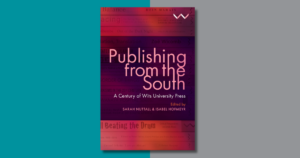
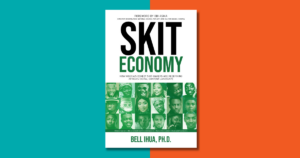
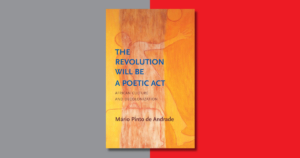
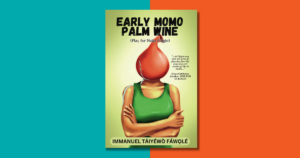
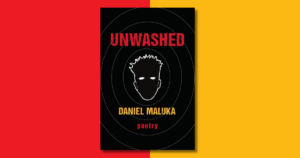
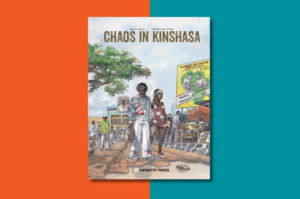

COMMENTS -
Reader Interactions